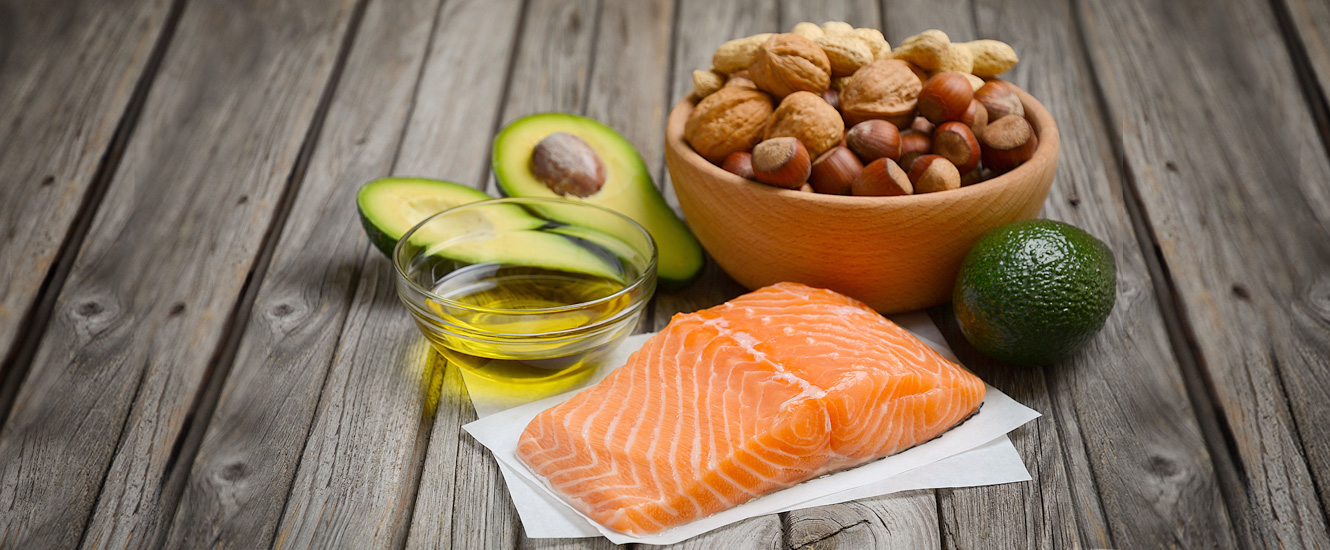A Low Carbohydrate High Fat diet (defined as either less than 26% of total energy intake coming from carbohydrates or less than 130 grams of carbohydrates per day) may not be the best dietary choice for everyone. Defined as either less than 26% of total energy intake coming from carbohydrates or less than 130 grams of carbohydrates per day. It has, however, been shown to be as safe and effective, if not more so, than High Carbohydrate Low Fat diets, for people with high cholesterol, diabetes, and non-alcoholic fatty liver disease. In fact, clinical studies have shown that Low Carbohydrate High Fat (LCHF) diets effectively lower blood sugar, triglycerides, insulin, and saturated fat. They also can help reduce blood pressure and weight and even increase levels of good cholesterol which could eliminate the need for damaging cholesterol medicines.
Reducing Hunger, Lowering Daily Calories
LCHF diets inherently increase the relative amount of protein and fat consumed per day. These diets are primarily made up of leafy green vegetables, nuts, fish, eggs, seeds, unprocessed meats, dairy, and plant oils. While it may seem counter-intuitive that consuming more fatty foods would cause weight loss, this is not the case. LCHF diets have been known to decrease hunger resulting in an overall decrease in daily caloric intake. It has also been proposed that LCHF diets provide a specific metabolic advantage by encouraging ketosis and ketone burning. This doesn’t go without scrutiny as LCHF is often referenced as a fad diet. As with all lifestyle and diet changes, we strongly encourage any such changes to be done under the supervision of a physician..
A 24-week clinical study looked at 363 overweight and obese patients who chose to start either a LCHF diet or a ‘low calorie, high nutritional value’ diet. In the 102 patients with Type 2 Diabetes, weight loss was significantly greater (−12.0% vs −7.0%) and their A1C and fasting blood glucose levels decreased significantly more with the LCHF diet. More patients on the LCHF diet were able to decrease or discontinue their diabetic medication as well.
A Decrease in Cardiovascular Risks
The increase in dietary fat consumption in LCHF diets has led to many misconceptions. One of the biggest concerns is risk for developing cardiovascular disease. However, several studies have shown that LCHF diets actually decrease cardiovascular risk more than HCLF diets. The increase in dietary protein has led some to worry that kidney function could be impaired. To date there has not been any evidence to suggest these negative effects occur in people with normal kidney function including diabetics. The most common side effects that do occur are fatigue, headache, and muscle cramps. Most people that experience these effects, do so within the first few weeks of adapting to the diet, then these events subside. The most common failure of all diets is lack of adherence. Studies have shown that people find it no more difficult to adhere LCHF diets than to others, and some people may even find it easier due to the hunger reducing effects.
The individual responses to dietary strategies may change from person to person, but LCHF diets have been proven to be a safe and effective option for improved health outcomes, especially in patients with metabolic syndrome.
References
Noakes, Timothy David and Johann Windt. “Evidence For The Prescription Of Low-Carb High-Fat Diets”. Medscape. N.p., 2017. Web. 22 Feb. 2017.
We want to make sure you have the information you need to safely
use your prescription drugs. Connect with a pharmacist at SinfoniaRx
who can help with non-emergency prescription questions
about drug interactions, and other medication-related questions.
For the best prescription price on medications,
www.WellRx.com.
Compare prescription drug prices at more than
62,000 pharmacies nationwide.
Fast, Easy, FREE!













 Store & manage your medication list
Store & manage your medication list Medication pricing updates
Medication pricing updates Pill & refill reminders
Pill & refill reminders Medication journal & mood log
Medication journal & mood log